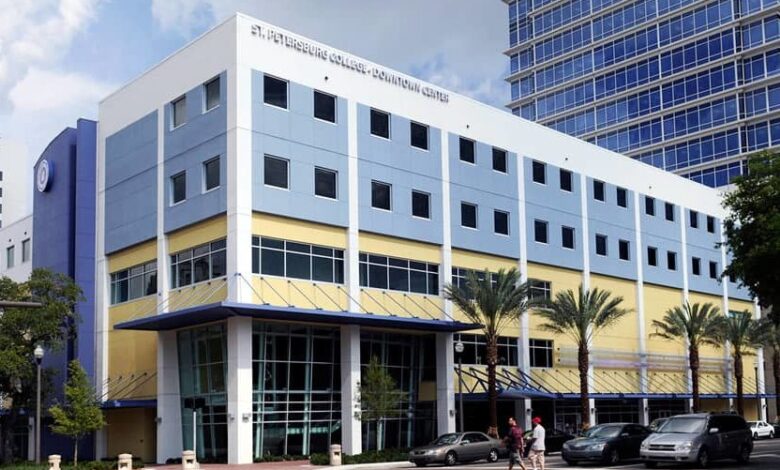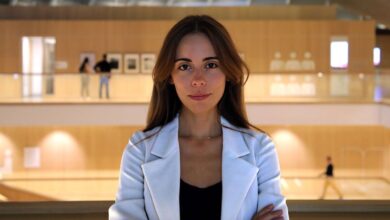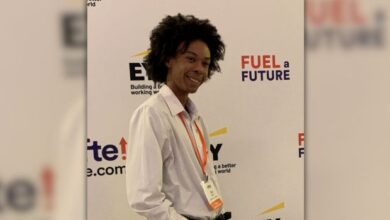New SPC programs foster entrepreneurship across demographics • St Pete Catalyst

Business leaders at St. Petersburg College are establishing new entrepreneurial programs and a startup incubator at Gibbs High School to help youth and professionals find success in an evolving economy.
The College of Business, led by Dean Dr. Emmanuel Hernandez-Agosto, will offer two new bachelor’s degree-level courses this fall. The first, a Corporate Entrepreneurship Advanced Technical Certificate program, will promote innovation among “intrapreneurs” who work in a traditional professional setting.
The Green Innovations and Social Entrepreneurship Certificate program will support environmentally focused burgeoning business owners and those who strive to create a positive community impact. Hernandez-Agosto said the new programs are part of SPC’s ongoing efforts to address emerging local and national trends.
“When you look at the profile of these younger generations, the majority of them want to start a business,” Hernandez-Agosto explained. “We look at the side hustle or gig economy – 88 million Americans are engaged in some sort of side hustle, even though they have a full-time job.
“So, it’s one of those things moving our economy.”
The college is also partnering with Gibbs High School’s Business, Entrepreneurial and Technology Academy to establish a startup incubator at the South St. Petersburg institution. The Florida Department of Education provided a $100,000 Entrepreneurship Education and Training Grant to fund the ambitious initiative.
Hernandez-Agosto said the school’s leadership sought solutions for students who lacked detailed after-graduation plans. However, assistant principal Dr. Nicole Johnson explained that many were aspiring entrepreneurs, and some were attempting to launch small businesses and supplement their household income.
The two schools then partnered to create an intentional program that provides support, mentorship and entrepreneurial programming – Titan Venture XLP. Participants can also earn 12-18 college credits for their business ideas and practical experience, reducing post-secondary costs and the time needed to complete a degree.
“It’s an incentive for them to come to school,” Hernandez-Agosto said. “And all that entrepreneurial experience translates to actual skills we can measure.”

Emmanuel Hernandez-Agosto, dean of the College of Business.
He noted that many high school students have a formal or informal (side hustle) business, either out of desire or necessity. Hernandez-Agosto said Titan Venture will help budding entrepreneurs scale their startups.
He said most earn money weekly, and “we want to ensure they can make money every day.” Three businesses founded by Gibbs students are now “up and running” and recently competed in a pitch competition for seed funding.
Those include Jeanette’s Place, which offers homemade body scrubs and sanitizers. NaturallieAmerie creates hand-crafted crocheted hats and other unique items, and 3ternal sells adjustable urban clothing for young adults.
While the Titan Venture program is still in its infancy, Hernandez-Agosto believes it is moving in the right direction. “I think that once we have a little bit more experience testing the techniques we’re using, we should be able to scale it to other schools and all of their students,” he added. “We will reevaluate what we did, what worked and what didn’t work, and see how we can move it forward next year.”
An overarching goal for the College of Business is supporting lifestyle entrepreneurs. Those people hope to create businesses outside the world of advanced technology.
VentureWell provided a $25,000 grant to support the Green Innovations program. The course promotes environmentally focused social enterprises, which value profits and community impact equally.
Hernandez-Agosto said the program would harness increased interest in creating sustainable solutions through STEM (science, technology, engineering and math). He said it could also help students “put those ideas and passion behind a potential innovation and come up with a social enterprise that could be for profit or nonprofit,” he explained.
Hernandez-Agosto said over 50% of Millennials and Gen Z – including those with traditional, full-time jobs – self-identify as entrepreneurs. The Corporate Entrepreneurship program will help people innovate within an established organization.
“We all know that our education system was designed for a different era,” Hernandez Agosto said. “But we haven’t evolved too much. Entrepreneurial mindset-type skills are what will take us … to be a true global competitor.”



